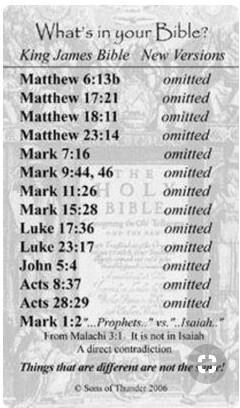You gest of what you wrote above (the OP) is that 1) the KJVOnly position did not exist prior to 1930, and 2) the KJVOnly position came out of the SDA movement.
I offer you an excerpt from Dr. Thomas Cassidy's work, (now retired), from the following link:
Textual Criticism Fact and Fiction - Thomas Cassidy
"My education started along similar lines, attending Central Baptist Theological Seminary in Minneapolis, Minnesota, a school originally founded by the late great W. B. Riley (as Northwestern Baptist Seminary), and continued by a former Northern Baptist pastor, Dr. Richard V. Clearwaters, who was one of the first to come out of the old convention and establish an independent church. W. B. Riley stated in his book "The Menace of Modernism" (New York: Christian Alliance, 1917), the Modernist believes the Bible's "inspiration exists only in its ability to inspire...its interpretation is a matter of mental conscience." Dr. Riley goes on to say there were a group of men whom he describes as the "old conception," who believed the Authorized Version or King James Bible (hereafter AV) was inerrant. He states on page 11, "On this point we are inclined to think that, even unto comparatively recent years, such a theory has been entertained." He then ascribes this belief to ignorance, and says, "I think it would be accepted without fear of successful controversy that such fogies in Biblical knowledge are few, and their funerals are nigh at hand." Actually there are quite a few of us, and I for one am feeling just fine, thank you. Dr. Riley then erroneously states the AV inerrancy position by saying on page 13, "To claim, therefore, inerrancy for the King James Version...is to claim inerrancy for men who never professed it for themselves..." No one, that I am aware of, is claiming inerrancy for men, but only for the words of God. This position is, I believe, a straw man, attempting to ascribe to us something we do not believe, and then condemn us for believing what they claim we believe. I believe the AV is vested with derivative inspiration, due to its having been carefully translated from the inspired words of the original language texts contained in the Traditional Masoretic (Bomberg's Second Rabbinic Bible, as edited by Rabbi Abraham Ben Chayyim), and the Traditional Greek (Byzantine or TR) text. I consider the Stuttgartensia and Alexandrian (WH) texts, from which all modern bibles are translated, to be corrupt. This is, I believe, easily demonstrated by the egregious errors contained in the versions translated from them. If we believe the AV has derivative inspiration, we must remember, where inspiration (even derivative inspiration) goes, inerrancy (also derivative) must, of logical necessity, follow. If inerrancy does not follow inspiration, we produce the absurdity of an "inspired" error! I believe the AV is inspired and inerrant because the preserved original language manuscripts from which it is derived are both inspired and inerrant, when correctly copied, which virtually all of the textual evidence suggests is assuredly the case. The charge of errors in the AV is an unfounded charge. The so-called errors are usually the result of an insufficient knowledge of the etymology of the English words used by the translators. Just a little knowledge of the English language clears up a great number of these so-called errors. There are only about 268 words in the A.V. that are not currently used in English (wot, wist, etc), or have changed meaning (Easter referred to the pagan celebrations clustered around the vernal equinox in 1611, roughly the same time as the Jewish Passover, but now refers either to Resurrection Sunday, or a secular holiday involving an egg laying rabbit(?)). I believe it is easier (and safer) to educate God's people as to the changes in English than to tamper with the Bible.
So then, it seems clear to me that Dr. Riley believed there were still a few of the "old conception" men in his day that still believed in an inerrant AV, that they were mostly old men, and were soon to pass away. If these men were old men when Riley wrote his book, they must have dated to at least the latter part of the 19th century. Over one hundred years ago, a group of "old conception" men existed who still believed in the inerrancy of the AV. This appears to indicate the "King James Only" position is not of recent origin.
Thus we can see, in Riley's day, a group of men still existed who believed, "(1) the Bible was finished in heaven and handed down, (2) the King James Version was absolutely inerrant, and (3) its literal acceptance was alone correct." (Page nine of Riley's book as quoted by Dr. George W. Dollar in his book "History of Fundamentalism in America", Page 114) We can easily see that W. B. Riley (1861 - 1947), understood this group of men to believe exactly as the "King James Only" crowd does today, and believed it long before any of the contemporary antagonists were born! The challenge of one scoffer to "Name one person who believed in the inspiration or inerrancy of the King James Version prior to 1950 and I'll send you $1000", has just been answered (please send the money to me at the address in the front of this book!)."
"The Menace of Modernism" was published in 1913, and as Dr. Cassidy wrote, it was an "old conception" when this book was published.
You were saying?


